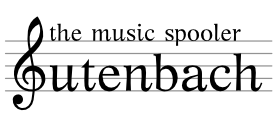| 1 | #!/usr/bin/python |
|---|
| 2 | |
|---|
| 3 | import sys, struct, logging |
|---|
| 4 | from .attribute import Attribute |
|---|
| 5 | |
|---|
| 6 | # initialize logger |
|---|
| 7 | logger = logging.getLogger(__name__) |
|---|
| 8 | |
|---|
| 9 | class AttributeGroup(object): |
|---|
| 10 | """ |
|---|
| 11 | An AttributeGroup consists of an attribute-group-tag, followed by |
|---|
| 12 | a sequence of Attributes. According to RFC 2565, "Within an |
|---|
| 13 | attribute-sequence, if two attributes have the same name, the |
|---|
| 14 | first occurrence MUST be ignored.", so we can effectively treat |
|---|
| 15 | this as an ordered dictionary. |
|---|
| 16 | """ |
|---|
| 17 | |
|---|
| 18 | def __init__(self, attribute_group_tag=None, attributes=[]): |
|---|
| 19 | """ |
|---|
| 20 | Initialize an AttributeGroup. An AttributeGroup can be |
|---|
| 21 | initialized in three ways: |
|---|
| 22 | |
|---|
| 23 | AttributeGroup() |
|---|
| 24 | AttributeGroup(attribute_group_tag) |
|---|
| 25 | AttributeGroup(attribute_group_tag, attributes) |
|---|
| 26 | |
|---|
| 27 | Arguments: |
|---|
| 28 | |
|---|
| 29 | attribute_group_tag -- a signed char, holds the tag of the |
|---|
| 30 | attribute group |
|---|
| 31 | |
|---|
| 32 | attributes -- a list of attributes |
|---|
| 33 | """ |
|---|
| 34 | |
|---|
| 35 | if attribute_group_tag is not None: |
|---|
| 36 | assert isinstance(attribute_group_tag, int), \ |
|---|
| 37 | "attribute_group_tag must be a character!" |
|---|
| 38 | |
|---|
| 39 | |
|---|
| 40 | self.attribute_group_tag = attribute_group_tag |
|---|
| 41 | self.attributes = [] |
|---|
| 42 | self.extend(attributes) |
|---|
| 43 | |
|---|
| 44 | def __getitem__(self, name): |
|---|
| 45 | """ |
|---|
| 46 | Returns a list of attributes which have name 'name'. |
|---|
| 47 | """ |
|---|
| 48 | |
|---|
| 49 | attribute = filter(lambda x: x.name == name, self.attributes) |
|---|
| 50 | if attribute: |
|---|
| 51 | return attribute[0] |
|---|
| 52 | else: |
|---|
| 53 | raise KeyError("Attribute %r not found" % name) |
|---|
| 54 | |
|---|
| 55 | def __contains__(self, name): |
|---|
| 56 | return len(filter(lambda x: x.name == name, self.attributes)) |
|---|
| 57 | |
|---|
| 58 | def __iter__(self): |
|---|
| 59 | return (a.name for a in self.attributes) |
|---|
| 60 | iterkeys = __iter__ |
|---|
| 61 | |
|---|
| 62 | def __setitem__(self, name, attribute): |
|---|
| 63 | """ |
|---|
| 64 | Sets an attribute in the attribute group. Note that the key is |
|---|
| 65 | ignored and the attribute is queried for its name. |
|---|
| 66 | """ |
|---|
| 67 | |
|---|
| 68 | return self.append(attribute) |
|---|
| 69 | |
|---|
| 70 | def __delitem__(self, name): |
|---|
| 71 | self.attributes = filter(lambda x: x.name != name, self.attributes) |
|---|
| 72 | |
|---|
| 73 | def append(self, attribute): |
|---|
| 74 | return self.extend([attribute]) |
|---|
| 75 | |
|---|
| 76 | def extend(self, attributes): |
|---|
| 77 | """ |
|---|
| 78 | Sets the attributes for the attribute group. |
|---|
| 79 | """ |
|---|
| 80 | |
|---|
| 81 | for a in attributes: |
|---|
| 82 | assert isinstance(a, Attribute), \ |
|---|
| 83 | "attribute must be of type Attribute!" |
|---|
| 84 | |
|---|
| 85 | for a in attributes: |
|---|
| 86 | # XXX: Instead of replacing the attribute, do we want to |
|---|
| 87 | # append the value to the attribute here? |
|---|
| 88 | del self[a.name] |
|---|
| 89 | self.attributes.append(a) |
|---|
| 90 | |
|---|
| 91 | @property |
|---|
| 92 | def packed_value(self): |
|---|
| 93 | """ |
|---|
| 94 | Convert the AttributeGroup to binary. |
|---|
| 95 | """ |
|---|
| 96 | |
|---|
| 97 | # conver the attribute_group_tag to binary |
|---|
| 98 | tag = struct.pack('>b', self.attribute_group_tag) |
|---|
| 99 | |
|---|
| 100 | # convert each of the attributes to binary |
|---|
| 101 | attributes = [a.packed_value for a in self.attributes] |
|---|
| 102 | |
|---|
| 103 | # concatenate everything and return |
|---|
| 104 | return tag + ''.join(attributes) |
|---|
| 105 | |
|---|
| 106 | def __repr__(self): |
|---|
| 107 | return '<IPPAttributeGroup (%r, %r)>' % (self.attribute_group_tag, self.attributes) |
|---|
